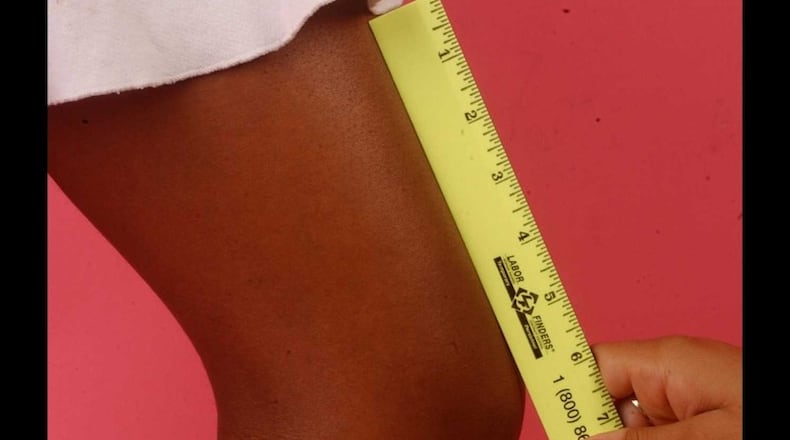Atlanta Public Schools spent $52 million to update David T. Howard Middle School and turn it into an innovative, modern facility. Now, it’s time to modernize the school’s dress code.
Under its aspirational philosophy, APS calls its students scholars. Yet, Howard lined up some female scholars to inspect the length of their shorts this week, according to parents. That doesn’t convey to girls that they’re regarded as intellectuals; it tells them they’re viewed as distractions, that their bodies must be covered up and their comfort — in this week’s sweltering temperatures — doesn’t matter.
Today, Howard Middle School students plan to wear shorts that they feel are both comfortable and appropriate for school. Student organizers are also encouraging classmates to write on their forearms or T-shirts “#IAmNotADistraction” or “#IAmNotDistracted.”
An APS parent for a decade, attorney Lynley Teras has three girls in the district, including an eighth grader at Howard Middle. “This was the first time she has ever been asked to stand up to be evaluated by what she is wearing,” said Teras.
“Schools across APS have the same dress code but implementation varies from school to school. This targeting of girls, as all the research shows, increases body shaming and victim blaming. It is inherently sexist for an administrator to walk down the hallway and ask the female-presenting students to straighten up to be evaluated,” she said.
Parent Keely Muse said her 13-year-old daughter was among a group of female students in a hallway told by an administrator to place their arms flat against their sides to assess whether their shorts extended past their fingertips.
Muse said only girls were subjected to the fingertip test. “Boys came up later and apologized to the girls,” said Muse. “The school did not code boys or threaten the boys to be removed from class. My daughter asked her friends who were boys to hold down their hands, and many had on shorts that would not meet the criteria.”
Muse’s older daughter is a senior at Midtown High School and was part of a 2018 campaign to change the APS dress code. That student-led effort resulted in a fairer dress code that does not mention anything about a fingertip test, merely stating: “Clothing, must be of appropriate length and fit.”
“My older daughter and her friends felt they had fought this fight, and it was settled law in their opinion,” said Muse. “Now, it has been inexplicably rolled back, and they are upset that this is happening to their little sisters and brothers.”
New Principal Janet McDowell sent parents a reminder of the dress code before the start of classes Monday, but never mentioned a fingertip rule. She wrote:
Students should select clothing per the APS Dress Code. If you would wear it to swim in, exercise in, sleep in, or lounge in...choose something else. Clothing that is designed to be worn under clothes should not be worn as outerwear. Clothing should NOT: expose midriffs, backs, or backsides; be excessively tight, short, or revealing; expose undergarments or underwear; have excessive tears, rips, or holes. Remember, we are no longer in Virtual School Mode. Please refrain from wearing pajama clothing and accessories such as slides and slippers to school.
An APS spokesman said Howard students are only being encouraged to follow the district prohibitions as stated in the parent letter, noting that students are not being suspended nor given detention or made to miss significant instructional time for violating protocol. The school will hold meetings with parents/caregivers over the next few weeks to get more feedback, according to the spokesman.
Howard parents mobilized with a petition sent Thursday to the principal seeking a swift end to dress code enforcement that they feel fosters body shaming and anxiety in girls. With 200 signatures, the petition contends:
• Girls were lined up in the hallway and asked to stretch their fingers down to measure their shorts and reprimanded if not long enough, regardless of body type, weight or size.
• Girls have been removed from class and sent to the front office for dress code violations and have been required to remain in the office and miss class time until a parent could bring them a change of clothes.
• Girls were asked to stand in class and then shamed for wearing clothing that allegedly violated the dress code.
• Girls are unwilling to wear shorts to school for fear of dress code shaming, and instead wear pants every day, even when the temperature exceeds 90 degrees.
An advocate for equitable dress codes, Atlanta therapist Amy Bryant said she understands how some people might consider Howard’s rigid rules a form of tough love. They’re not, she said. “They’re tough control.”
Schools don’t equip kids for life by making them jump through hoops, she said, but by encouraging critical thinking and personal discovery of what feels right and true for them.
“We are still dealing with living through a pandemic,” Bryant said. “Creating a higher degree of stress in already tense situations just compounds it. We are just setting kids up for failure by creating unnecessary stress.”
About the Author
The Latest
Featured


